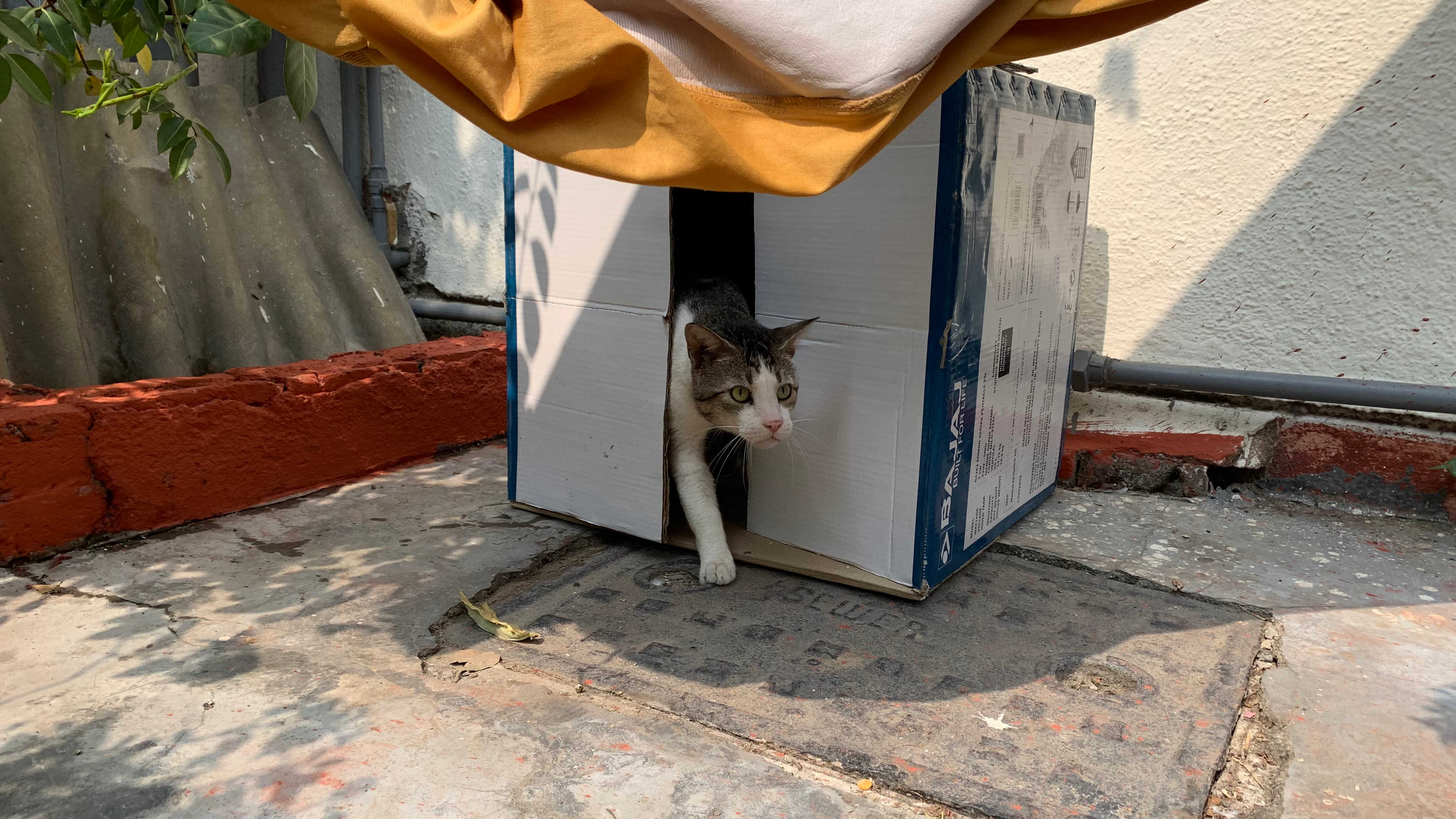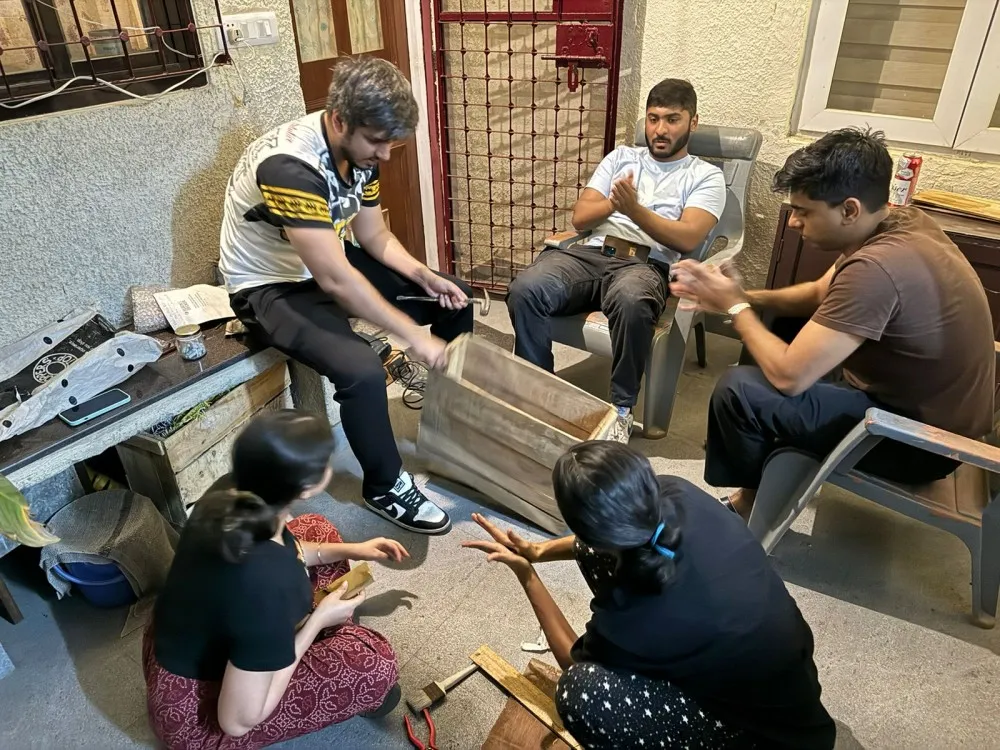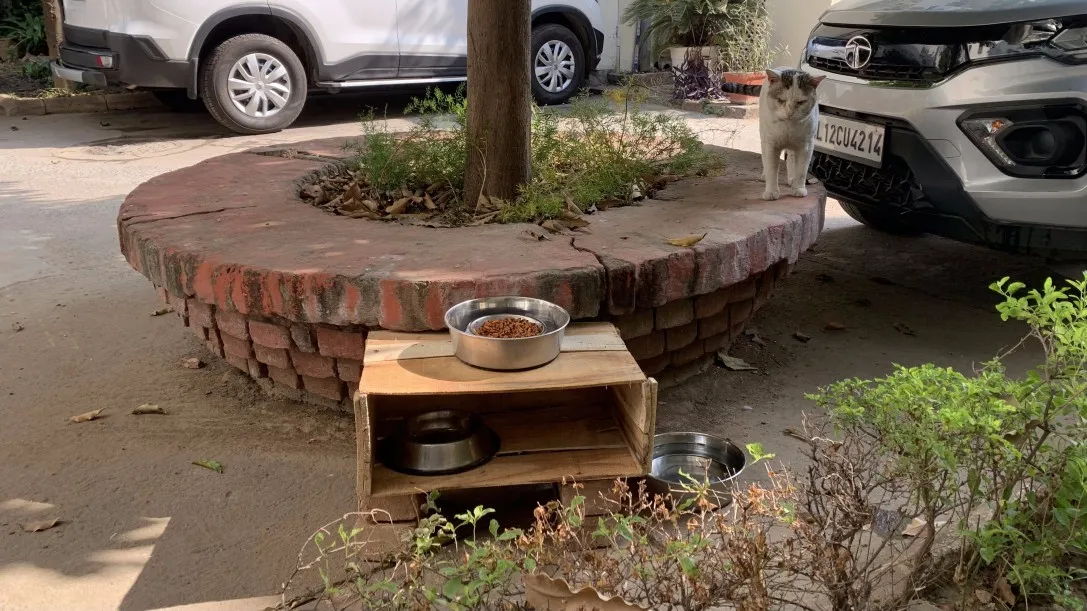Caring for both cats and humans in a housing community in New Delhi
Using Convergent Facilitation Menaka helps neighbors transform tensions over stray cats through a collaborative process that fosters empathy, trust, and workable solutions for both cats and humans.

This Convergent Facilitation process was held by Menaka Neotia. The case study was written by Menaka Neotia and Julia Sherbakov.
Summary
In a housing community in New Delhi, India, a seemingly small issue of stray cats turned into a deep conflict, dividing neighbors between those who wished to care for cats and those who were frustrated by their growing numbers and impacts. Through a process of Convergent Facilitation (CF) stewarded by resident and facilitator Menaka Neotia, the community found a way forward that fostered collaboration, addressed concerns, and created agreements that care for both cats and humans. This example demonstrates the power of CF in transforming entrenched conflicts into opportunities for growth, trust-building, and increasing collective capacity.
Live Q&A with Julia
Setting the Scene
The Press Enclave, a gated cooperative housing community in New Delhi, is home to around 150 families. A conflict around cats erupted when a territorial tomcat passed away, leading to a surge of other stray cats marking their territory. Feeding practices by some residents became more visible, leading to complaints about cat urine and feces, and fears of an increasing feline population.
The conflict deepened as neighbors clashed over feeding locations, cleanliness, and perceived disregard for past agreements. Communication only drove people apart, as older residents challenged younger cat caregivers in a community whatsapp group and directly. Power dynamics did not ease the tension: the Managing Committee (MC) has the final say in decisions, and residents defaulted to them in meetings, but the MC didn’t have effective collaborative ways of addressing concerns and tensions between neighbours. This was the setting in which Menaka Neotia, a resident and trained facilitator, stepped in.
Stages of Convergent Facilitation
1. Listening to all perspectives
Menaka began by hearing what mattered most to everyone involved. Listening for the non-controversial essence (NCE) in what people shared, she distilled their underlying needs and concerns. These ranged from “protecting the wellbeing of cats” to “ensuring clean shared spaces” and “encouraging people to engage meaningfully with situations of conflict.”
Never before have my concerns been heard like this. - community resident
The way [Menaka] heard and understood needs made the [Committee] get a sense of acceptance. — Nikhil Deshpane, resident
2. Identifying openings for proposals
Once all concerns were heard, Menaka looked for “openings” as she facilitated decision-making meetings. She introduced proposals for specific concerns, such as setting up experimental cat shelters and defining agreed-upon feeding zones. She also navigated micro-conflicts, such as neighbors negotiating where feeding would occur or how to manage pets chasing stray cats.
After hearing the facilitator would be multi-partial, I saw that there would be justice for all, and the process had my blessings. — Neighbor, initially opposed to stray cats
Being an animal caregiver, I realized caregiving isn’t just about feeding animals but also about taking the society along. — Akshay Savoor, resident
3. Building systems for sustained collaboration
Beyond the immediate conflict, Menaka continues to strengthen systems for decision-making and feedback. The Managing Committee agreed to create a volunteer group to build facilitation skills within the community.
[Menaka’s] willingness to tackle challenging issues head-on, coupled with her tireless efforts to find solutions, has been truly inspiring. — Ajay Sud, Managing Committee
Outcomes
Agreements
Designated, covered feeding areas were established, as well as a shelter for cats where they were already sleeping, in order to care for the cats while minimizing inconvenience to residents. Neighbors also created agreements between them to mitigate impacts, such as managing feeding timing, cleanliness, and pet behaviors.
 Image: Community members building a crate for covering food.
Image: Community members building a crate for covering food.
 Image: The newly developed cover for the food bowls.
Image: The newly developed cover for the food bowls.
We thought that the cat menace was a constant that we would have to live with in the colony. Your effort has been like a breath of fresh air. Makes me wonder if the cats are lucky or we are, and then I think both are lucky. – Kapil Sachdev, resident
Community Trust
Trust grew as residents saw solutions emerge and felt their concerns were valued. The Managing Committee, once inundated with grievances, saw fewer complaints as neighbors began seeing that their concerns were attended to with seriousness by the facilitator.
Before the CF process, I was unsure how we (the cat lovers) would solve this and sensitize the other side to let cats be. There has been a 180-degree turnaround. There are fewer complaints. — Nikhil Deshpane, resident
Personal transformation
Many participants learned the value of dialogue and collaboration. The community is beginning to recognise “complaints” as opportunities to work together, shifting the narrative from division to partnership.
Collaboration is possible because of genuine attempts to address concerns and tiny adjustments made by everyone. — Aditi Aggarwal, resident
Longer-term potential
The housing community is considering additional CF processes for future conflicts, building on the trust cultivated during the cat discussions. Menaka is also planning to introduce frameworks for feedback and decision making that extend beyond this issue.
We, the Managing Committee of Press Enclave, would like to express our heartfelt appreciation to Ms. Menaka Neotia for her exceptional leadership, dedication, and empathy in addressing residents’ concerns. Her commitment to the well-being of our community is commendable. – Ajay Sud, president, Managing Committee
Want to learn more about Menaka’s experience as a facilitator in this process?
Convergent Facilitation requires significant skill and dedication from facilitators to bridge divides in ways that we think many communities desperately need. Since it involves deep integration of nonviolence, few facilitators have both the willingness and capacity to take on this work. Those who do often face challenges that lead to valuable learning.
Menaka has captured her own challenges and learnings in a separate behind-the-scenes deep-dive. To get an inside look at Menaka’s experience facilitating this process in her housing community, visit the CF Community site (requires registration): Facilitation Insights: Reflecting on dilemmas and lessons from holding a conflict that polarized the housing community.
About Menaka

Menaka Neotia has faith that if humanity grows back it’s capacity to integrate, we may actually begin experiencing living more in flow with life and not at odds with it. She began facilitating CF in the colony she lives in in India because she wanted the community she closely lives with to experience nonviolence in this way, and support them to care for impacts by integrating the information within it and not avoid it so that they are able to make decisions that impact the community more effectively. She hopes to continue practicing CF and offering the gifts it brings as a step towards creating a world that can actually work for all.